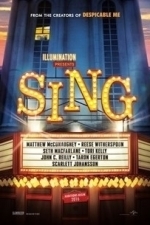
Lonely Planet Los Angeles, San Diego & Southern California
Lonely Planet, Adam Skolnick, Sara Benson and Andrew Bender
Book
Lonely Planet: The world's leading travel guide publisher Lonely Planet Los Angeles, San Diego &...

Lonely Planet Northern California
Lonely Planet, Sara Benson, Alison Bing and John A. Vlahides
Book
Lonely Planet: The world's leading travel guide publisher Lonely Planet Northern California is your...

Lonely Planet San Francisco
Lonely Planet, Sara Benson, Alison Bing and John A. Vlahides
Book
Lonely Planet: The world's leading travel guide publisher Lonely Planet San Francisco is your...

Lonely Planet South Africa, Lesotho & Swaziland
Lonely Planet, James Bainbridge, Lucy Corne and Jean-Bernard Carillet
Book
Lonely Planet: The world's leading travel guide publisher Lonely Planet South Africa, Lesotho &...

Lonely Planet the Italian Lakes
Lonely Planet, Anthony Ham and Paula Hardy
Book
Lonely Planet: The world's leading travel guide publisher Lonely Planet The Italian Lakes is your...

Lonely Planet Ukraine
Lonely Planet, Marc Di Duca and Leonid Ragozin
Book
Lonely Planet: The world's leading travel guide publisher Lonely Planet Ukraine is your passport to...
Gareth von Kallenbach (980 KP) rated Sing (2016) in Movies
Jul 12, 2019
Buster Moon (voiced by Matthew McConaughey), has achieved his childhood dream of owning a theater. Business have become bleak, the once grand Moon Theater is in disrepair. With the bank ready to repo the property, in a stroke of desperation, Buster comes up with the idea that a singing competition would be the solution. Aided by his trusty assistant, Miss Crawley, Buster begins the audition to find the next big star.
The audition brings out all creatures great and small; from Meena, the shy elephant with the gift of song (voiced by the exceptionally talented Tori Kelly) to Mike, the mouse (voiced by Seth MacFarlane) a crooner who is out for himself. The rag-tag bunch includes Rosita (voiced by Reese Witherspoon), the stay at home mom who feels like she has lost who she was, paired with Gunther (voiced by Nick Kroll) the dancer with the greatest self image ever. Johnny (voiced by Taron Egerton) the dedicated son who does not want to go into the family business with his dad, who instead wants to sing. Rounding out the performers is Ash (voiced by Scarlett Johansson) the timid girl that breaks out into an angst-y rocker that just wants to play her music.
The story is cute and charming with some laugh-snort moments. We are given glimpses into the lives of each performer, providing us with the background on what motivates each to be in the competition. We also get some history of Buddy, how he came to own the theater, his best friend Eddie (voiced by John C. Reilly) and Eddie’s Grandmother (Older Nana – voiced by Jennifer Saunders, Younger Nana – voiced by Jennifer Hudson). The last third is the best part of the film. We finally see each performance where we were only given little glimpses prior. There are some surprising performances. I had no idea that Taron Egerton, who plays Johnny, the silverback(The Kingsmen, Eddie the Eagle) sings so beautifully. The highlight for me is when Tori Kelly (Meena) sings the Stevie Wonder tune “Don’t You Worry ‘Bout A Thing.” Her rendition lives on still as my earworm.
I was pleasantly surprised by the film, I definitely did not expect it to be quite as enjoyable. It’s not “Despicable Me” or” Minions”, it is a fun family movie that is worth watching that has laughs for the adults as well.

Password4U for Viber,WhatsApp,Private Media
Social Networking and Lifestyle
App
*********Happy Hours Special Price for 24 hour only********* *****Awesome features is now...


